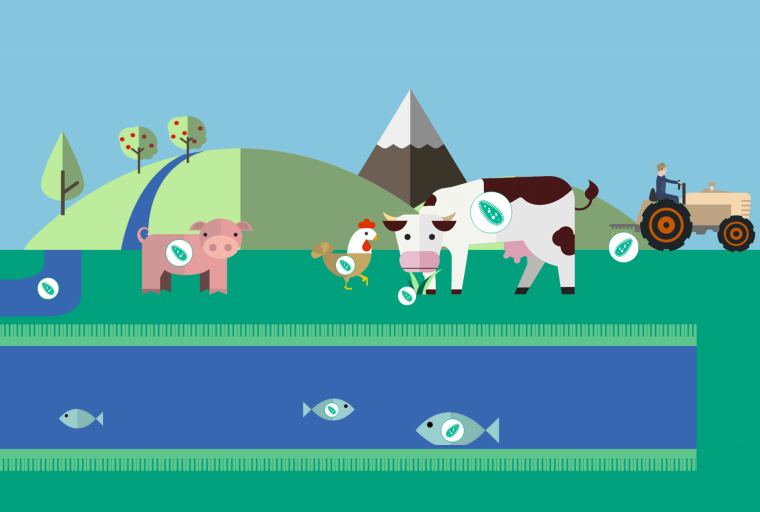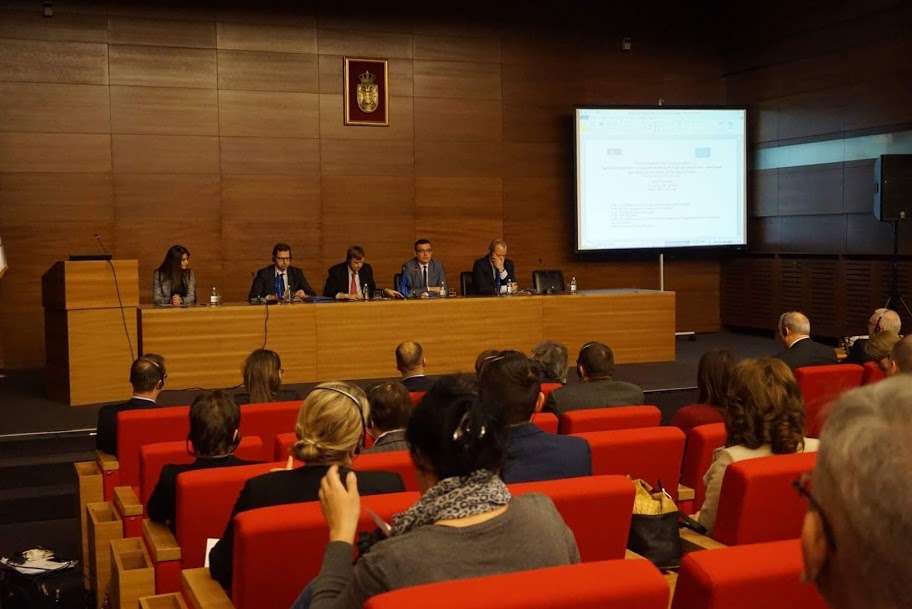The press conference held in Belgrade to mark the closure of Twinning project Capacity building for upgrading of food establishments and animal by-product management concluded that in order to trade products of animal origin such as meat, dairy, pet food, hides and skins on EU market, Serbia needed to adopt and implement adequate measures.
The three-year project, funded by the EU and implemented by food directorates of the Netherlands, Denmar and Latvia, included training for animal by-product management.
155 inspectors have undergone training in the procedure for upgrading of food establishments, whereas 38 inspectors have undergone training in upgrading of animal by-product management.
This is a part of a wider package of EU financial assistance aimed at helping Serbia align its standards in the field of food safety and veterinary policy, worth EUR28 million.
Deputy Head of the EU Delegation to Serbia Oskar Benedikt said that Sebia “in order to join the EU and access its market, needs to meet EU food production standards. Meeting the standards is not easy, but with adequate human resources, political support and a strong focus, the results will be certain,“ Benedikt said.
Benedikt added that the EU was implementing several projects in that area in Serbia, including those aimed at eradication of rabies, noting that further assistance will be provided through IPARD funds.
Minister of Agriculture and Environmental Protection Branislav Nedimovic said that the Ministry would take all the necessary actions to offer consumers only safe and competitive food. He noted that the first call for proposals under EU’s IPARD fund should be published in September 2017.
 Dutch Ambassador to Serbia Hendrik van den Dool said that “food production standards are key“ adding that agriculture should be one of Serbia’s export pillars. He said that thanks to high food safety and quality standards, the Netherlands was the world’s second largest food exporter, after the USA.
Dutch Ambassador to Serbia Hendrik van den Dool said that “food production standards are key“ adding that agriculture should be one of Serbia’s export pillars. He said that thanks to high food safety and quality standards, the Netherlands was the world’s second largest food exporter, after the USA.
Morten Skovgaard Hansen, Charge d’affaires of the Embassy of Denmark, said that Denmark stood ready to share its experience regarding the sanitary and veterinary food control thanks to which it had secured food safety, consumer protection and competitiveness.
This very important EU legislation is covered by chapter 12 in Serbia’s negotiations for EU accession. Once the legislation is fully implemented, it will provide a higher level of hygiene standards in animal by-product and food production leading to safer and better quality products for Serbian and international consumers, providing Serbia with an opportunity to increase the production of agricultural products and become more competitive.
The three-year project Capacity building for upgrade of food establishments and animal by-product management has been implemented by the Dutch Food and Consumer Product Safety Authority, the Danish Veterinary and Food Administration and the Food and Veterinary Service of Latvia which provided support to the Serbian Veterinary Directorate and the agri-food industry on how to upgrade milk and meat establishments and introduce more efficient animal by-product management[1], in line with EU regulations.
EU experts supported Government of Serbia in preparing the National Strategy for Upgrading of Establishments Dealing with Food of Animal Origin which was adopted on 6 January 2017.
In addition, two awareness raising campaigns have been conducted during the project. A campaign aimed at explaining the process of upgrading slaughterhouses and meat and milk establishments in Serbia was conducted from 19 December 2016 until 25 January 2017, in cooperation with Serbian Chamber of Commerce, reaching 180 food producers in Novi Sad, Valjevo, Nis, Krusevac, Pozarevac and Belgrade. A campaign providing information on roles and obligations in animal by-product management, within the regulatory framework and the National strategy for animal by product management, was conducted during January 2017. Six training sessions were held for some 200 representatives of local self-governments, veterinarians, farmers, animal by-product operators and food business operators in Novi Sad, Nis and Belgrade.
With EU support, Serbian Veterinary Directorate has also prepared procedures and checklists for upgrading of food establishments and animal by-product management as well as guidelines for animal by-product and food business operators.
The project also supported the creation of the Council for Improvement of Food Production, established on 26 August 2014 by the Ministry of Agriculture and Environmental Protection. Its role is to advise the authorities in the areas of food processing and animal by-product management, finding the best solutions for Serbia in line with EU requirements. Through joint work, relevant bodies will be able to make informed decisions in a transparent manner.
[1] Animal by-products are products not intended for human consumption, such as fallen stock, offal, feathers and bones.




